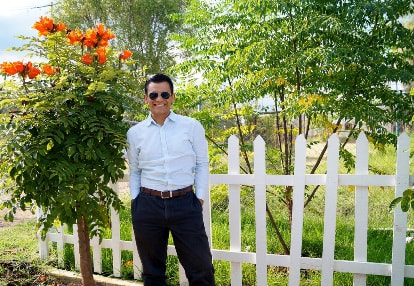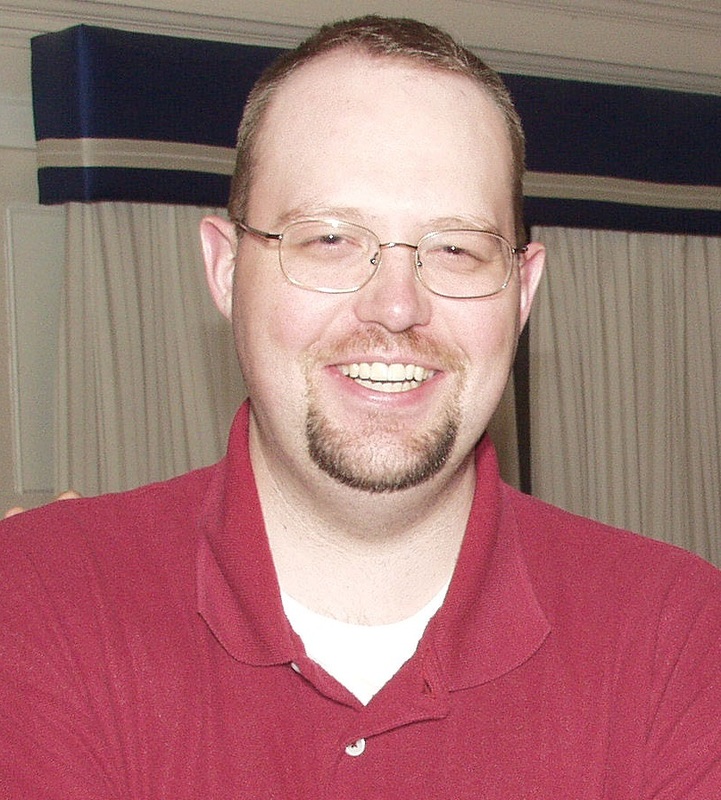It wouldn’t be so bad if we’d stop comparing ourselves unfairly. Whether against other people or some idealized standard, many Latter-day Saints feel they fall short of what and where they should be. And many of those Latter-day Saints are single. They look at their lives and think they should be married by now. It’s then easy to jump to the conclusion that something must be wrong with them and that’s why they’re still single. Other LDS singles reach a corollary conclusion with just as much erroneous logic. They believe they’re not good enough — not handsome or pretty enough, not funny enough, not cool enough, not whatever enough. If only they were a more attractive person, they reason, then they wouldn’t be stuck in their single status. That’s why I love Elder Holland’s remarks. He reminds us that we are good enough, that we don’t need to bridge today the entire distance between where we are and where we want to be, that our journey can be joyful if we improve our approach to it. We can be perfect . . . eventually. Lighten up  That last word eventually is key. It reminds us that our journey is more than just a few steps. Our journey comprises many, many steps — more than we can possibly take in this mortal life. Perfection, the final result of reaching our final destination, won’t come in this life. Why then give us the commandment to be perfect? Elder Holland believes at least one reason is to give glory to God and show what we can achieve in the eternities to come. Knowing the perfection of God can create gratitude that our imperfections need not be the end of us. God in his perfection will make up for what we lack. Of course, that doesn’t justify ignoring our covenants. Elder Holland explains,
How often do we LDS singles criticize ourselves for whatever failings we have? When we let go of our need to be perfect now, we’ll find it easier to let go of our repeating patterns of self-criticism. Look for good enough  Elder Holland reminds us that “except for Jesus, there have been no flawless performances on this earthly journey we are pursuing.” He then advocates avoiding excessive expectations for achieving perfection in others as well as in ourselves. That got me thinking. Many LDS singles expect perfection in the eternal companion they seek. They create this ideal that very few if any could actually reach. After all, you don’t want to spend eternity with imperfect. But by limiting their prospective candidate pool, they limit their probability of success. They make it harder to find that eternal companion. Elder Holland reminds us that no one is perfect. That means the eternal companion you’re looking for is imperfect. If you go about looking for perfection, you’ll not likely find your eternal companion because that imperfect person will never fit your insistence on perfection. Since the person you seek is not perfect, then you should really be looking for good enough. That doesn’t mean you have no standards. Good enough implies that some standards have been met. You just don’t want so many standards that you reduce your likelihood of success too much. Having standards that are too exacting can yield the same result. Balance is the key. Be willing  When we partake of the sacrament each week, we do not pledge to be perfect. We do not witness we’ll take upon ourselves the name of Christ, always remember him, and keep his commandments. We witness we are willing to do these things (see D&C 20:77). That pledge of willingness allows space for slips and failings. We strive for perfection while at the same time forgiving both ourselves and others for shortcomings. If we were perfect, we wouldn’t need saving. So we don’t need to be perfect to be saved. We just need to be good enough — good enough to receive the gift of grace that bridges any gap. And if we just need to be good enough, then that’s all anyone else needs to be as well. I love Elder Holland’s concluding remarks:
May we all stop looking for perfection in this mortal life while never stopping to strive after it as part of our more eternal journey. When we do, we’ll have more joy in our journey.
0 Comments
 Thanksgiving is tomorrow, which in some respects is hard to believe given how long Thanksgiving decor has garnished many stores. I never liked skipping ahead with holidays nor celebrating them too soon. I never saw that on my mission in Guatemala. Many people there spend their days collecting what they need to survive that day, whether that’s harvesting corn and beans for food, grinding the corn and making tortillas, or collecting firewood for cooking. I’m still touched by memories of impoverished people sharing with me what little they had. They don’t need to share with me. I can go home and enter any number of local grocery stores where I can have whatever I want. Yet they still shared with me. Usually I didn’t really want what they shared. I endured much sickness on my mission, often feeling like something was alive inside of me trying to eat its way out. How was I to know what might make me sick? Still, I was grateful to be around good-hearted people sharing from their scarcity. And they felt grateful to be able to provide. We chose to be grateful. One who choose not  Not everyone made that choice, though. I remember meeting a bitter man who always complained that my country didn’t share enough of its wealth. Gratitude was nowhere to be found near this man. He was a pathetic clod of misery. I never said that to him because of his anger management issues. Unfortunately my companion didn’t share my perspective. One day, when he taunted us as we walked past the tienda where he sat drunk, my companion mouthed back to him. In response, he pulled out a pistol and threatened to shoot us. My companion quickly bolted. I was set to follow, but something stopped me. A power I couldn’t see physically held me back, and I felt strongly impressed to walk, not run, away. I complied. The man followed me, waving his pistol and commanding me in drunken slurs to return to my home country. At length, I turned my head and shouted, “Look at me. I am walking away. I’m going home.” He then stopped, turned around, and walked back towards the tienda. I never saw him again. And I’m very grateful for that! The right focus  This man never seemed grateful for anything. He chose a constant focus on what he lacked and how unfair and unequal his situation was compared to others. Because your focus becomes your reality, he had a reality of lack, unfairness, and inequity. And that made him miserable. In contrast, many of his countrymen chose to be generous rather than spiteful. They focused on sharing what they had rather than searching for ways to accumulate more for themselves. That focus led to a reality of abundance that inspired gratitude. And that made them happy. Just as you can choose what you focus on, you can choose to be grateful for what you have. Focusing on what you lack leads to a reality of lack, and that reality makes it harder to choose gratitude. Focusing on what you have leads to a reality of abundance, and that reality makes it easier to choose gratitude. You can be grateful and happy, or you can be ungrateful and unhappy. It all depends on the focus you choose. Make sure you choose wisely. The right choice  It’s sometimes not enough to focus on what you have. You also need to avoid comparing yourself with others. Including any element of comparison in your focus invites a reality of competition making it harder to be grateful, especially when you don’t win. Typically, we don’t win the comparisons we make with others. Those exercises often provide evidence for not believing in ourselves and our own potential. What’s to make us think we can accomplish anything great if we aren’t as good as somebody else? That line of questioning leads to a focus of lack, which in turn leads to a reality of lack, which in turn makes it harder to be grateful. It all depends on what you choose. You can choose to be grateful when you choose to focus on the positive elements of your life. That will create a reality of positivity that will encourage gratitude. Choosing to be grateful then reinforces that focus on the positive, and the cycle repeats itself, leaving you in a much happier state. And that will bring you more joy in your journey.
 It’s like they say. When life gives you lemons, keep them. Because, hey, free lemons. Oh, did I get that wrong? Let’s try again. When life gives you lemons, make lemon chicken. After all, lemonade is so cliché, and with all that sugar probably not that good for you either. Of course, if you want to make lemonade with your free lemons, go ahead. You’ll still be getting the point — seeing the opportunity amidst the obstacle. Too often we LDS singles are like many others who focus so much on the obstacle that our reality becomes one of frustration. But when we focus on the opportunity that always comes with the obstacle, our reality can be one of freedom. Either way, our focus becomes our reality. We’ve discussed before how seeing the opportunity amidst the obstacle can lighten our burdens of adversity and even help us to overcome them. Opportunities vary with the obstacle, but one is fairly constant across the spectrum. That’s the opportunity to laugh. Make the time  With the holidays almost upon us, many seem so busy with all that needs doing because the holidays are almost upon us. They’re so busy, in fact, they’ve become rather serious — maybe too serious. Sure, I’m all for respecting why we have the trinity of holidays that connect the years together. There’s some serious purpose in that as well as serious work needed to prepare for our associated traditions. Yet taking ourselves too seriously, we’ll miss much of the joy our Heavenly Father has provided in our journey. We must make time to laugh. Recently I’ve discovered I’ve been too serious. Mostly it comes from my day job. I want to be known as a professional who delivers good work. Yet all science and no philosophy is no way to live life — at least not a pleasant one. I see the need to laugh more often. I once agreed with Neil Young who sang, “It’s better to burn out than to fade away.” But now I’m starting to wonder if the reverse is true. How else will generations who outlive me see my light and benefit therefrom? Plus I’ll have more time to laugh. Seize the opportunities  I actually have plenty of opportunities to laugh all around me. I didn’t realize how many I had until I started to look. I have some funny movies that I haven’t watched in years. I’ve started to watch these again and have noted something. In addition to providing me with opportunities to laugh, these films have brought back memories of friends from prior years, especially ones I had in college. Remembering these people who blessed my life has lifted my spirit. I’ve also discovered the humor section in my personal library was larger than I thought it was. Just looking through some of these tomes brought back memories of college friends I haven’t seen in years. Joy and laughter attended those memories. For example, thumbing through my copy of The Dilbert Principle reminded me of my engineer roommate Ben and the Dilbert TV show sound clip we adopted for our answering machine message. I’ll never forget walking with him inside the Institute building when around the corner came one of our friends who upon seeing us immediately went into a tirade, screaming that she would never call our apartment again until we got that extremely long message off our machine. Just remembering that episode sets me to giggling just like my roommate and I did in that moment. Wherever you find your humor, the point is still the same. We all have opportunities to laugh all around us. We just need to look to find them. Make new memories  In addition to finding opportunities to laugh from memories of the past, we can make our own opportunities to laugh. In so doing, we provide joy in our journey now in the present and later in the future as we reminisce about the past. Finding those opportunities requires a focus on finding on them. That doesn’t imply anything more than the right balance of a laid back attitude with an alert mind that can recognize opportunities when they appear. I wish I could say I were the best at doing that. And not everyone appreciates my sense of humor. But we all have room to improve somewhere. I’ve improved over the years, but this still happens to be one of my “somewheres.” As I apply myself and practice I’ll eventually get better. I’ll also get better as I make more time in life to laugh, something all of us should do more and more often. Take some time to find your jollies. Doing that will bring you more joy in your journey.
 Last week we discussed our need to continue looking for the answers we need in our lives no matter how long it takes. Certainly that process will involve prayer. If your prayers are anything like mine have more often been, you’ll be quite familiar with the checklist exercise. Even if you begin by thanking God for your blessings, your prayers can still be rote activities in which you repeat the same vain desires for your life to be better. Is there a way to take prayer up a notch? Of course there is! The answer lies in the Sermon on the Mount. As I’ve mentioned in previous posts, the Sermon on the Mount may be the best handbook ever written on discipleship. I’ve also described an annual tradition I have of studying the Sermon on the Mount during the last 40 days of the year as a way to renew my own discipleship of the Master. This tradition has benefited me greatly. One of those benefits has been insights into taking my prayers to the next level. Here’s one such insight: If you want to take your prayers to the next level, have a care for His work. Thy Kingdom come
The first words (“after this manner”) indicate that what follows is a model. Examining each part of this model reveals its structure: First comes an acknowledgment of God and His work. Then comes a pleading for our needs, both temporal and spiritual. The final part connects with the first by again acknowledging God. Thanking God for our blessings is one way to say, “Hallowed be thy name.” But what comes after — “Thy kingdom come” — is something few of us practice. We rarely discuss with Him our own individual participation in His work. And yet it is one of the key practices for taking our prayers to the next level. The better approach  It makes sense when you think about it. One of the purposes of prayer is to build a relationship with our Heavenly Father. Which approach is more conducive towards fostering that relationship? Approaching someone to speak only of your needs and wants? Or approaching someone to speak of his or her needs and wants? Obviously it’s the latter. Yet so many of our prayers are more the former. We disburse a list of everything God needs to do for us so that our lives will be better. Yet how better would our lives really be if we approached Him to discuss His needs and wants? We know what those are. “For behold, this is my work and my glory—to bring to pass the immortality and eternal life of man” (Moses 1:39). Is it any wonder that the Master first taught His disciples “Thy kingdom come” before teaching them “Give us this day our daily bread”? This of course doesn’t mean we should never bring our own needs and wants before our Maker. We just shouldn’t lead with it. You build a relationship with someone by having an outward focus, and that means leading with their needs and wants, not yours. Advance His work God’s work is so expansive that the possibilities for our prayers are truly endless. That’s quite fitting since Endless is His name (D&C 19:10). You could talk about those who you home teach or visit teach. You could discuss your efforts to find the names of your ancestors and provide them with the opportunity to have the ordinances of salvation and exaltation. You could talk about your member missionary activities. Or you could discuss your current calling in your ward or stake. Perhaps you’re struggling with bringing an inactive member of your ward or your family back into Church activity. You could even discuss your own personal ministry. Every effort to bring goodness into the world advances God’s work. And I’ve long advocated partnering with the Lord to embrace your own personal ministry. Whatever aspect of God’s work you choose for your focus as you lead your prayers, you’ll notice an immediate change in the quality of your prayers as you begin with a care for His work. That’s been my experience. If you want to get out of a repetitive prayer rut, or you just want to improve your prayers, trying having a care for His work. The increase in the quality of your prayers will result in an improved your relationship with your Heavenly Father that you can feel. And that will bring you more joy in your journey.
 Last week we discussed our need to see the opportunities amidst our obstacles. Taking advantage of those opportunities can lighten our load and place peace in our hearts. And sometimes it’s the only way to overcome our obstacles. But sometimes that won’t be enough. Sometimes lingering, unanswered questions plague us. Try as we might, answers continue to elude us. It’s one thing when answers take days or weeks to come. It’s quite a horse of a different color, as they would say in the Emerald City of The Wizard of Oz, when you spend years without any clear answer in sight. Many decide to give up when their needed answers aren’t forthcoming. They think their answers will never come if they don’t come on their schedule. That’s like saying if a seed doesn’t sprout on your schedule then it never will. That’s ridiculous. Just as seeds sprout on Nature’s schedule, the answers we need will come on God’s schedule. It may take longer than we’d like, but if we never stop looking, our answers will come when the time is right. Go the distance  The Master taught, “Ask, and it shall be given you; seek, and ye shall find; knock, and it shall be opened unto you” (Matthew 7:7). He never said how long that would be. And He doesn’t need to. Sometimes we need to experience ample asking, extended seeking, and prolonged knocking because that experience will endear the knowledge we desire more to us. Sometimes we need to pay that price because that knowledge is worthy of such a price. Other times we simply need the experience to grow into what God wants us to become. God knows what’s best for us. We need to have faith He knows the time that’s best. And we need the patience to wait on Him in His time. That’s doesn’t mean sitting idly by, twiddling our thumbs. No! Patience in the Lord’s view is a verb, not a noun. Waiting on the Lord is an active process. However long it takes for us to find the answers we need, we show the Lord the seriousness of our desire by going the distance and continuing to look for the answers we need until we find them. Learn to walk  Do you remember what learning how to walk was like? Most of us don’t. Yet most of us have seen enough toddlers learning to walk to fill in the blanks created by our lack of memory. For example, did you walk perfectly upon taking your first step? No, you didn’t. In fact, you most likely fell flat on your face — or your butt. It took continued practice and many attempts before you gained the knowledge you needed to walk. Some of you took longer than others to learn the same lessons. But all who walk today do so without much thought in the activity. We simply do it. In like manner, we won’t always receive the answers we need upon asking the question once. Sometimes we need repeated attempts as part of our learning process. Yet with continued effort, eventually the Lord’s timetable is met and we receive the answers to our questions. Walk in faith  All of our questions have answers. Just because some answers aren’t readily available doesn’t mean they don’t exist. We should walk in faith that our search for answers will eventually yield fruit. We should also walk in faith that the Lord will help us find the answers we need. He may not answer us right away when we need the experience of searching in order to grow in the way that He knows is best for us. But He will always provide peace in our hearts that helps us to have patience. He will also speak to us in a variety of ways. It could be in a passage of scripture or a hymn sung in church. It could be in the comment of a friend or in the ponderings of a quiet moment. For me, often the answers I seek come in the form of a book. When I need an answer to a question, eventually in my search I’ll encounter a book that provides a stepping stone — sometimes through a new piece of knowledge, sometimes a new perspective — leading me towards the answers to my questions. However He chooses to speak to you, never stop looking for the answers you need. You may not know how long you need to look, but you can know that your answers are there and that they will come in the Lord’s time. You can have the answers you need. And that will bring more joy in your journey.
|
Author
Howdy! I'm Lance, host of Joy in the Journey Radio. I've been blogging about LDS singles life since 2012, and since 2018 I've been producing a weekly Internet radio show and podcast to help LDS singles have more joy in their journey and bring all Latter-day Saints together. Let's engage a conversation that will increase the faith of LDS singles and bring singles and marrieds together in a true unity of the faith.
Comment
Joy in the Journey Radio encourages the free discussion of ideas but reserves the right to remove and/or block comments which do not conform to LDS standards.
Donate
Joy in the Journey Radio offers many free resources to help LDS singles everywhere, but it certainly isn't free! Help Joy in the Journey Radio in its mission to improve the lives of LDS singles by donating today.
Posts by Month
December 2022
Categories
All
|







 RSS Feed
RSS Feed